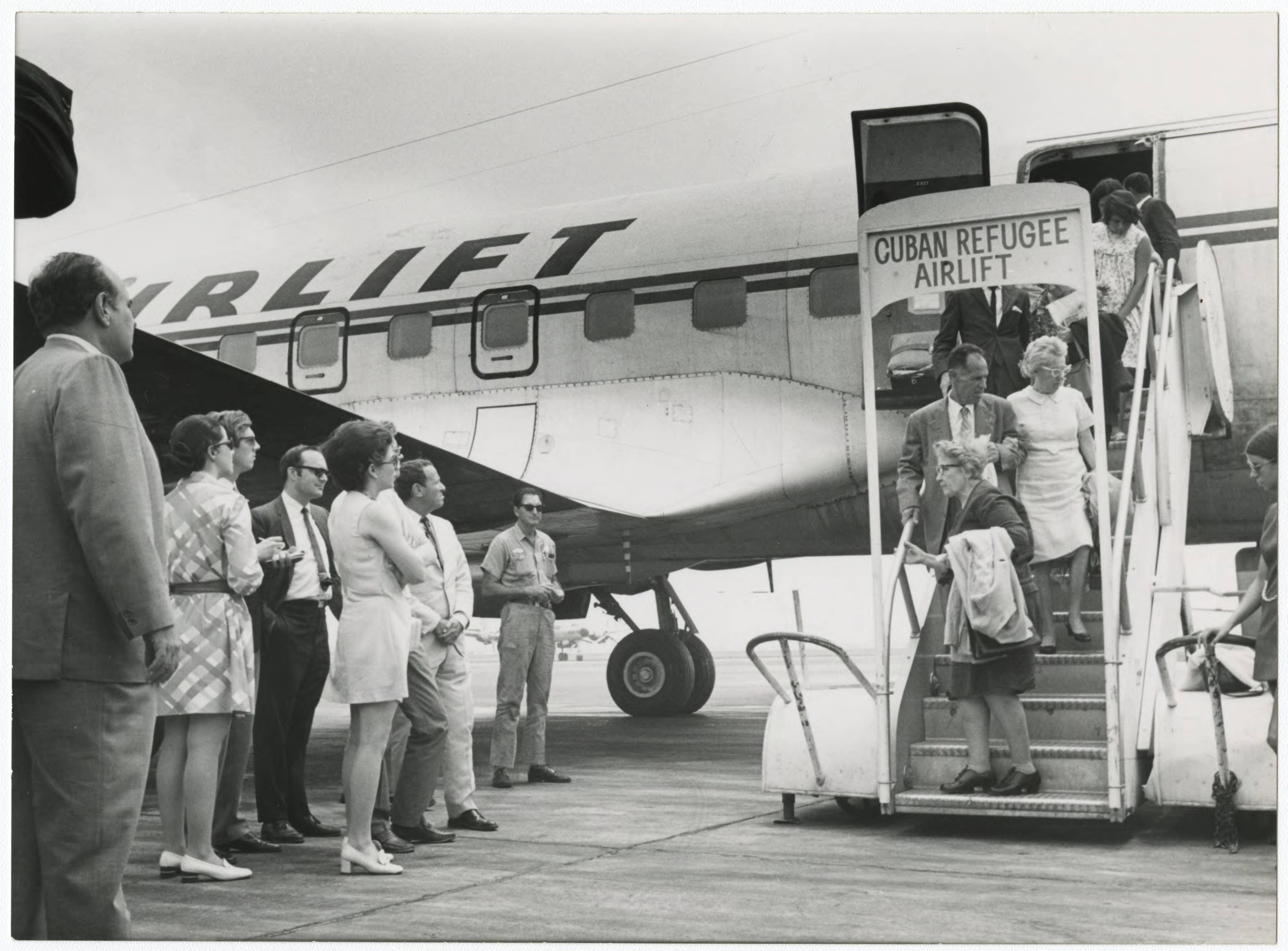The conference language is English. / Die Konferenzsprache ist Englisch.
Organizers:
Leibniz Centre for Contemporary History Potsdam (ZZF), Moses Mendelssohn Zentrum für europäisch-jüdische Studien (MMZ)
“Operation Safe Haven,” “Operation Wings of Eagles,” or even “Operation Moses” – the very names suggest that airlifts, sealifts, and other rescue missions for the persecuted are often wrapped in spectacular and heroic narratives. For those involved, organized refugee transports frequently appear as moments of extraordinary fortune – not least because, unlike individual flight, which in the 20th century was typically marked by arduous and dangerous journeys, these operations are seen as more inclusive, safer, and less burdensome. Moreover, in contrast to the often defensive posture taken toward individual refugees, destination states in these organized efforts generally responded with willingness, accepting predetermined numbers of people.
The conference “Fragile Lifelines: Organized Refugee Transportation and Rescue Missions since the 1930s” critically examines such success narratives and the assumptions embedded within them. Bringing together different empirical perspectives on the history of organized refugee transports in the 20th century, it draws inspiration from Mobility Studies – a field where current research emphasizes the political and cultural dimensions of migration routes, transport infrastructures, and evacuation strategies (Peter Adey 2024; William Walters, Charles Heller, Lorenzo Pezzani 2022).
In contrast to the well-documented history of individual flight – long the central focus of refugee and migration scholarship – organized transports have received comparatively little attention, especially from comparative or integrative perspectives. This conference explores a broad spectrum of cases involving air, sea, and overland transport, spanning from the rescue of refugees from the Spanish Civil War in the interwar period, to the postwar global resettlement of DPs, and the experiences of Southeast Asian “Boat People” in the 1970s, and extending to present-day perspectives.
We aim to examine these missions in their broader historical and political contexts – considering not only the immediate backdrops of conflict and violence, but also wider transformations linked to fascism and National Socialism, the Cold War, decolonization, state formation, and the dissolution of the Soviet Union. Especially significant to us are approaches that center mobility, transport modes, routes, and infrastructure, as well as analyses of the political, economic, cultural, and social dimensions of refugee transportation. We are particularly interested in issues of inclusion and exclusion, unequal mobilities, and the concept of mobility justice (Mimi Sheller 2018).
Program
THURSDAY, NOVEMBER 6, 2025
2.00 pm | Arrival and coffee at the ZZF, Am Neuen Markt 1
2.15 pm | Welcome and opening
3.00 – 5.00 pm | Panel 1
Chair: Isabella Löhr (ZZF Potsdam)
Eike Klages (EUI Florence): Organised Transports as an Argument for Restrictionism: The Case of Vietnamese “Boat People” 1978/1979
Julia Kleinschmidt (MMZ Potsdam): Resettlement as Symbolic Acts. Invited Refugees and Anti-immigration Politics in the Netherlands during the 1970s
Frank Bösch (ZZF Potsdam): Airlift for Socialist Refugees? West Germany and Chile‘s opposition in the 1970/80s
Coffee break
5.30 – 7.00 pm | Public conversation: Maritime Rescue and the Politics of Refugee Evacuations with Annika Schlingheider (United4Rescue e.V./ Terre des Hommes) and Clemens Nagel (Sea Watch e.V.) at the MMZ, Am Neuen Markt 8
FRIDAY, NOVEMBER 7, 2025
9.00 – 10.00 am | Virtual Keynote by Peter Adey (Monash University, Melbourne) at the ZZF, Am Neuen Markt 1
10.15 – 11.45 am | Panel 2
Chair: Kerstin von Lingen (University of Vienna)
Dolores Augustine (St. John’s University New York): The Voyage of the S.S. Sinaia to Mexico: Rescuing Spanish Refugees in 1939
Tobias Brinkmann (Pennsylvania State University): “Liberty Trains”: The Evacuation of Jewish DPs from Shanghai 1949/50 via Ellis Island to Israel and West Germany
Light lunch snack and coffee
12.30 – 2.00 pm | Panel 3
Chair: Lisa Sophie Gebhard (MMZ Potsdam)
Lena Christoph & Konstantin Schischka (University of Vienna): Urgency and Selectivity. The Airborne Evacuation of Russian Emigres from Shanghai to the Philippines, 1949
Carolin Liebisch-Gümüş (ZZF Potsdam): Humanitarian Take-offs: The Emergence of Refugee Airlifts from the Post-war Years into the Cold War
2.00 – 2.30 pm | Wrap-up discussion
Venue
Leibniz-Zentrum für Zeithistorische Forschung Potsdam (ZZF) e. V.
Open Space
Am Neuen Markt 1
14467 Potsdam
and
Moses Mendelssohn Zentrum für europäisch-jüdische Studien (MMZ)
Am Neuen Markt 8
14467 Potsdam
Contact and registration:
Guests are warmly welcome! For registration (no fees), please write an email to the organizers:
Carolin Liebisch-Gümüş (ZZF)
carolin [dot] liebisch [at] zzf-potsdam [dot] de (carolin[dot]liebisch[at]zzf-potsdam[dot]de)
Julia Kleinschmidt (MMZ)
julia [dot] kleinschmidt [at] uni-potsdam [dot] de (julia[dot]kleinschmidt[at]uni-potsdam[dot]de)

